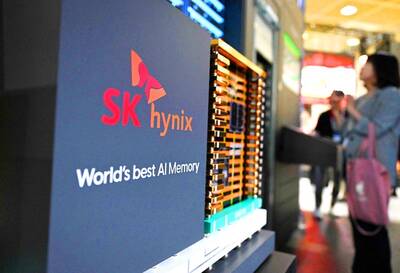China’s Internet users — already by far the world’s most numerous — rose to nearly 700 million last year, authorities said yesterday, more than twice the population of the US.
Beijing imposes strict controls on online content, while e-commerce is a vital part of its efforts to transform the economy into one driven more by consumer demand.
The Asian giant’s Internet population — defined as those who have gone online at least once in the past six months — stood at 688 million at the end of last year, up 39.5 million year-on-year, according to the government’s China Internet Network Information Center (CNNIC).
The figure accounts for more than half the people in the world’s most populous country.
More than 90 percent had gone online through their mobile phones, the CNNIC reported, while two-thirds had used desktop computers and nearly 40 percent laptops.
Several Chinese tech firms, led by Jack Ma’s (馬雲) Alibaba Group Holding Ltd (阿里巴巴), have become multi-billion dollar giants in recent years as the country’s online population has boomed.
At the same time Beijing blocks Web sites it deems politically sensitive in a system dubbed the “Great Firewall of China,” and social media companies censor user-generated content.

Quanta Computer Inc (廣達) chairman Barry Lam (林百里) is expected to share his views about the artificial intelligence (AI) industry’s prospects during his speech at the company’s 37th anniversary ceremony, as AI servers have become a new growth engine for the equipment manufacturing service provider. Lam’s speech is much anticipated, as Quanta has risen as one of the world’s major AI server suppliers. The company reported a 30 percent year-on-year growth in consolidated revenue to NT$1.41 trillion (US$43.35 billion) last year, thanks to fast-growing demand for servers, especially those with AI capabilities. The company told investors in November last year that

United Microelectronics Corp (UMC, 聯電) forecast that its wafer shipments this quarter would grow up to 7 percent sequentially and the factory utilization rate would rise to 75 percent, indicating that customers did not alter their ordering behavior due to the US President Donald Trump’s capricious US tariff policies. However, the uncertainty about US tariffs has weighed on the chipmaker’s business visibility for the second half of this year, UMC chief financial officer Liu Chi-tung (劉啟東) said at an online earnings conference yesterday. “Although the escalating trade tensions and global tariff policies have increased uncertainty in the semiconductor industry, we have not

Power supply and electronic components maker Delta Electronics Inc (台達電) yesterday said it plans to ship its new 1 megawatt charging systems for electric trucks and buses in the first half of next year at the earliest. The new charging piles, which deliver up to 1 megawatt of charging power, are designed for heavy-duty electric vehicles, and support a maximum current of 1,500 amperes and output of 1,250 volts, Delta said in a news release. “If everything goes smoothly, we could begin shipping those new charging systems as early as in the first half of next year,” a company official said. The new

SK Hynix Inc warned of increased volatility in the second half of this year despite resilient demand for artificial intelligence (AI) memory chips from big tech providers, reflecting the uncertainty surrounding US tariffs. The company reported a better-than-projected 158 percent jump in March-quarter operating income, propelled in part by stockpiling ahead of US President Donald Trump’s tariffs. SK Hynix stuck with a forecast for a doubling in demand for the high-bandwidth memory (HBM) essential to Nvidia Corp’s AI accelerators, which in turn drive giant data centers built by the likes of Microsoft Corp and Amazon.com Inc. That SK Hynix is maintaining its